The Checker Maven
The World's Most Widely Read Checkers and Draughts Publication
Bob Newell, Editor-in-Chief
Published every Saturday morning in Honolulu, Hawai`i
Noticing missing images? An explanation is here.
2021 ACF National: A Big Thank You
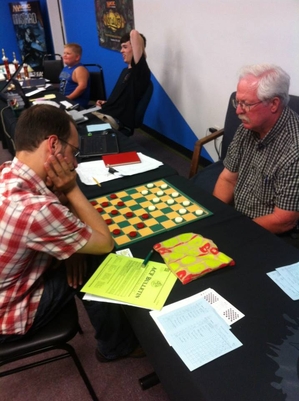
After a year's hiatus due to the Coronavirus pandemic, the ACF National Tournament is slated to return in October, 2021, and it's all thanks to the efforts of Joe McDaniel and his family.
It's shaping up to be one of the great competitions of checker history with a prize fund of epic proportions, running into the tens of thousands of dollars.
The tournament will take place in Tulsa, Oklahoma, October 4-7, 2021. You can read full details in the tournament flyer by clicking here.
Mr. McDaniel granted The Checker Maven an interview, which we're pleased to publish today. Joe had the following opening comment.
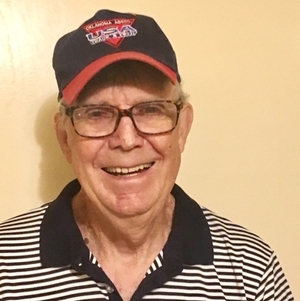
Joe McDaniel
"Since 1943 I have been fascinated by checkers. The fact that on the surface it appears to most everyone to be a simple game, for children and very old folks. This is one thing that intrigues me.
I am not a really good player. If I finish half way in the minors in a major tournament I am happy."
Well, Joe, we're not so sure about you being a "not really good" player, but here's the rest of the interview.
Q. After a year's hiatus due to Covid, the 2021 ACF National Tournament looks to be one of the most spectacular offerings in tournament history, with $32,000 in guaranteed prizes. How did this come about?
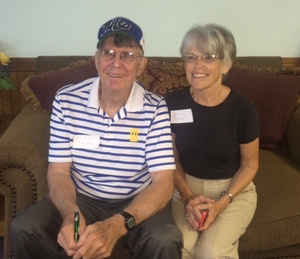
Mr. and Mrs. Joe McDaniel
A. Most of the prize money for the 2021 national tourney is from my wife and me. ACF will provide $9,000 and individual donations will be about $1,500. My sons have given $16,000.
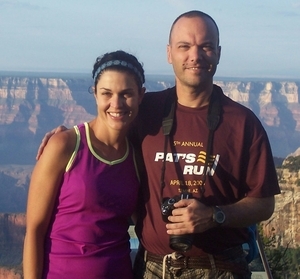
Danielle Winkler and David Seres
We are also giving $5,000 for the Kondlo/Bernini GAYP match which will happen right after the tourney. We will also give $4,500 for the World Qualifier here in Tulsa in November.
The total cost for the tourney and match will be about $47,000. This includes helping with the hotel rooms for several individuals. Also, the cost of entry fees and ACF membership will be around $3,000. Missouri Checker Association fees will be around $300.
The love of the game has motivated me to be the major sponsor.
Q. Tell us more about the decision to honor a great champion, Alex Moiseyev.

Alex Moiseyev
A. We believe Alex M. deserves to be the honoree based on his accomplishments. He is arguably the best player in the country.
Q. What do you expect to see in the way of participation? Do you anticipate much in the way of youthful contestants?
A. We had 56 players in the last national 3-move in Branson in 2015. Hopefully we can have the same number in Tulsa. We are personally contacting several young players.
Q. Do you expect any difficulties with Covid restrictions?
A. If Covid is still a threat we may have to postpone the tourney into 2022.
Q. How can the checker community help out with this tournament?
A. We are asking for contributions in the letter we have sent to over 100 players. If you wish to help with the prize fund, send your contribution to: 1416 S. Marion Ave., Tulsa, OK 74112. Make checks payable to Joe McDaniel. Contact okrunjoe@cox.net you have any questions.
Thanks, Joe, for this fascinating information, and for everything you do for the great game of checkers. We all look forward to this year's tournament.
We asked Joe for his favorite checker problem, and he mentioned one by grandmaster problemist Brian Hinkle that we've previously published. Rather than repeat that problem, Brian generously provided us with another of his sparkling compositions.
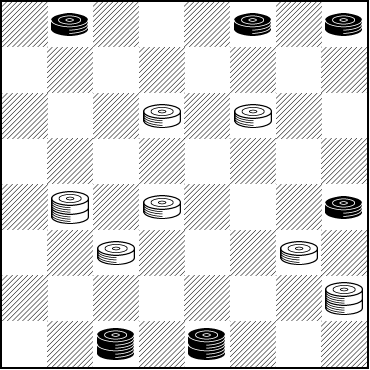
WHITE
White to Play and Win
W:W10,11,K17,18,22,24,K28:B1,3,4,20,K30,K31
Give this one a try and you'll understand why Joe picked one of Brian's problems as a favorite. When you're ready click on Read More to see the solution.![]()
The Weasel

For the first problem of the month we've got one that's very easy and yet very entertaining. When you see the solution you'll understand the title of today's column.
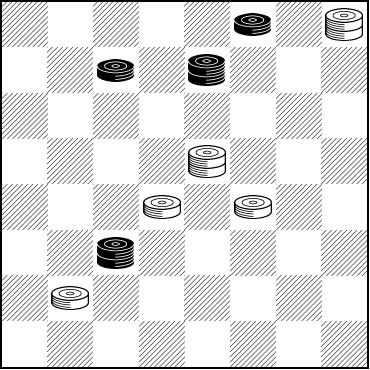
WHITE
White to Play and Win
W:W18,19,25,K4,K15:B3,6,K7,K22
Players beyond beginner level will get this one in a few seconds, and for beginners, the solution will be an amusing discovery.
Don't weasel out; solve the problem and then click on Read More to verify your solution.![]()
Brian Ups the Stakes
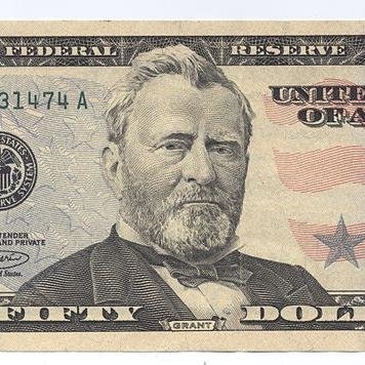
Brian Hinkle's Prize Problem hasn't been solved as of the date of publication, so he's upping the ante. As of 00:01 AM HST on June 1, the prize offer will increase to $50. Brian asks, "Are you a gambler?" In other words, do you submit your solution now, while the prize is still $25, or take the chance and wait for the $50 prize, knowing that someone else might solve it in the meantime? It's all up to you!
We won't be publishing the solution on June 4, as originally planned, to allow further time for someone to submit the winning solution. Good luck to one and all!![]()
See terms and conditions on the problem page linked above. Void where prohibited by law.
Marvin in the Playoffs, Part 2
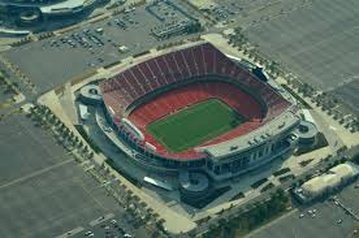
Kansas City Checkerdrome
Recall from last month's story that in the Division Playoffs between the Kansas City Kingers and the Detroit Doublejumpers, the final match had ended in a tie, when Marvin J. Mavin came from behind to take a game from the Kansas City captain, Dr. Sharper.

Doctor Sharper
But the game ended in controversy with Dr. Sharper accusing Marvin of cheating and demanding that the referee, Dasha Dachner, search Marvin's copious hair for concealed communications devices. A near-riot took place and Dasha ordered all the players off the field while she made an urgent phone call to National Checker League President Nhoj Rekca.
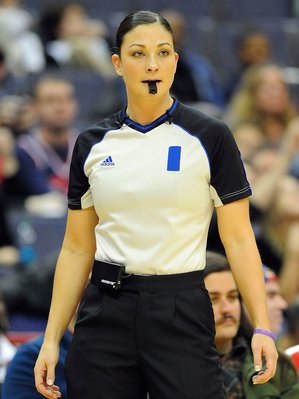
Referee Dasha Dachner
Dasha then used her wireless mic to announce, "Mr. Rekca has ruled. Searches must be requested before a game begins, not after it ends. The result stands and a sudden-death game will begin."
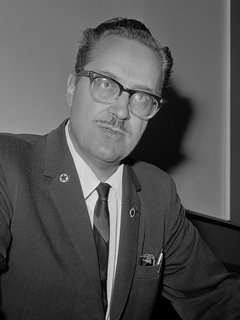
Nhoj Rekca, NCL President
Booing came loudly from the huge Kansas City hometown crowd, but it wasn't going to change anything. Dasha called Marvin and Dr. Sharper back to the field and announced the terms of the Playoff version of the sudden death round.
"Play continues, alternating colors, until one player wins. If the other player doesn't win the next game, the match is over, otherwise the match continues until a player wins two games in a row, or scores a win followed by a draw. After six games, the first player to win carries the day.
"Gentlemen, play checkers!"

Marvin J. Mavin
"But what about his hair?" complained Dr. Sharper.
"What about your hair?" said Marvin. "You ain't got much and it's probably full of cooties!"
"The decision of the NCL President is final!" said Dasha. "Begin play now or you will be ordered out of the match."
After a few stares and glowering looks passed between Marvin and Dr. Sharper, play did finally commence. There were two draws, then Marvin won a game but Dr. Sharper won the next. Another two draws followed.
The next player to take a game would claim the Division Title for his team.
Two more draws later, the following position was on the board with Marvin to play.
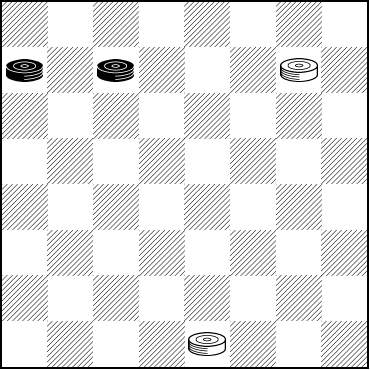
WHITE
White to Play, What Result?
W:W8,31:B5,6
"Another draw," said Dr. Sharper, "unless, of course, you blow it and lose. Which you will. I'm a doctor and I can see how tired you are."
"Hey, Sharpie, cut the talk. I ain't tired. And I ain't going to lose neither."
"Right, you'll cheat again."
"That does it!" Marvin stood up and remained silent for a moment. The crowd fully expected him to call for the referee and make a complaint.
But instead, Marvin made his move.
What move would you have made in this position? Is the game a dead draw as Dr. Sharper claimed? Or did Marvin have a "sharper" view of the position?
Stay sharp, solve the problem, and give a sharp click of your mouse on Read More to see the solution and the conclusion of our story.![]()
Beacon Cafe: The Rematch
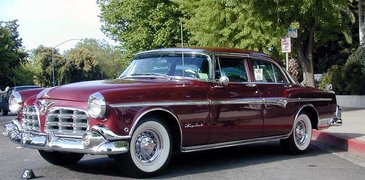
They arrived in Bismarck at around 11 AM in a brand new 1955 Chrysler Imperial.
"That's a $15,000 car," whispered Louie, looking out through the front window of the Beacon Cafe as the Imperial pulled up at the curb. "That Professor must be loaded!"
It was the last Saturday in May, the final meeting before the summer break for the Coffee and Cake Checker Club, and it was no ordinary meeting. Today was the much-anticipated rematch between the Bismarck club and Fargo's Let's Have Another Cup of Coffee, Let's Have Another Piece of Pie Checker Club. Recall (see last month's Checker Maven story) that the first match, held in Fargo, was a draw, and today, everything would be once again on the line.
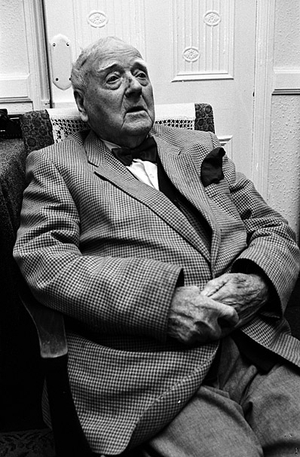
Sal Westerman
Sal Westerman, the leader of the Bismarck club, tried. He really did. He tried hard to be polite to the Fargo leader, Professor Don Steam, despite his rival's rudeness. So when the Fargo team entered the Beacon Cafe, Sal shook hands and with the Professor and welcomed his team to Bismarck.
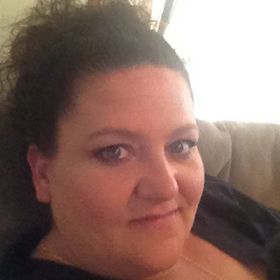
Deana Nagel
Deana, the proprietress of the Beacon and a championship baker in her own right, had a different view. Anyone who was rude to Sal was no friend of hers. She threatened to serve the Fargo team day-old cold coffee until Sal intervened and convinced her that would be bad for business. "Kill them with kindness," Sal said, "it's always the best way."
It didn't take long for the Professor to start with the jibes. "Well, Westerman, you won't be lucky twice in a row. This time, you go down." (In the previous match, Sal had saved the day by finding a draw in a tough position.)
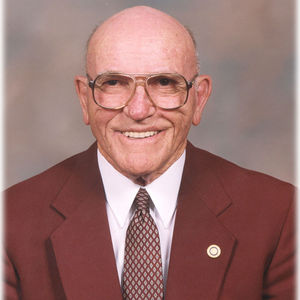
Mayor Lips
As the home club, Bismarck would treat the visitors to lunch after the match was concluded, and Bismarck Mayor Evan Lipps would put in an appearance. A reporter from the local newspaper and a local radio station were on hand. The match would be broadcast live over the radio, as the Beacon Cafe was too small to accommodate many spectators.
"How can you play in such a dingy dump?" Professor Steam asked.
That was too much for Deana. "Watch your mouth, you!" she said. "If you don't like it here, there's the door!"
"Gosh, don't you tame your women out here?" Steam asked. "That one could use a little ..."
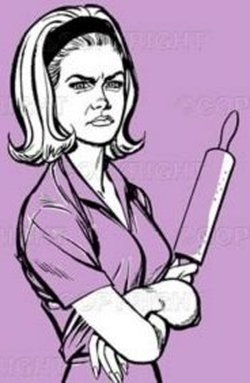
But Deana, brandishing a rolling pin, was already out from behind her counter, and the look on her face made Steam take a couple of steps back. "Look, I was just ..."
"Yeah, right," Deana said. But, satisfied for the moment, she returned to the other side of the counter.
Fargo had brought along the same team that played in the previous match. Sal, though, had changed things around a little. He would still play first board, with Dan still on second board and Wayne on third. Louie would move up to fourth board while Mike would play fifth. Delmer had asked to sit this one out.
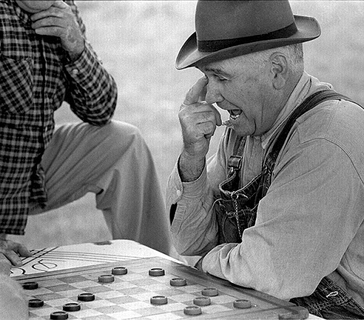
Don Steam
Then a funny thing started to happen. Professor Steam would look at Sal and start to say something, but then he would glance over at Deana and seem to change his mind. The match began without him saying more than a few additional words.
The players were in the booths at the back of the cafe. As the match progressed, the radio announcer, Rollie Gordon, kept up a whispered commentary over the special telephone line the radio station had run into the Beacon.
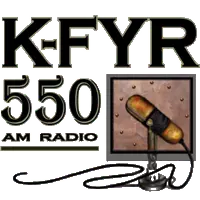
All of the games were close, but finally the results started coming in. Mike won one and lost one. Louie lost two, while Wayne won two and Dan got two draws. The first game between Sal and the Professor was a draw.
As it was last time, the match was even at 9-9 with one game to go between Sal and Professor Steam. Neither of them had yet managed a win against the other, yet neither of them wanted to adjourn for the summer without a definite settlement to the club rivalry.
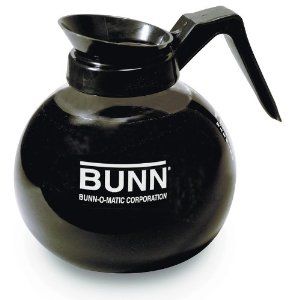
Deana served coffee to the growing crowd of onlookers. The cafe was filled to capacity and then some, and business was brisk. Deana freshened Sal's cup and then, while refilling Professor Steam's, accidentally spilled a little coffee on his overalls. Or, perhaps, it wasn't entirely accidental?
"Hey, watch it, you ...." But again, a stare from Deana stopped him mid-sentence. "Coffee's probably poisoned," he muttered under his breath, but he made sure Deana had moved out of earshot before he did so.
The game was tense and well-fought, and finally came down to this position, with Sal to move.
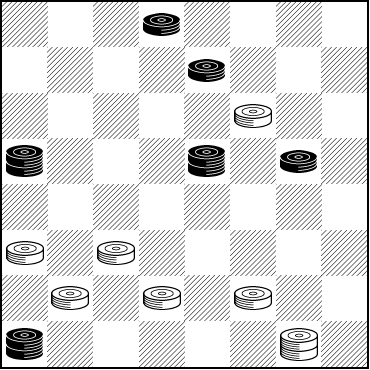
WHITE
White to Play, What Result?
W:W11,21,22,25,26,27,K32:B2,7,16,K13,K15,K29
Sal was a piece up, but the Professor was threatening to get it back right away, and if he did he would have the lead with three kings to Sal's one. It didn't look good.
"For goodness' sake, don't you know when to resign?" Professor Steam said. "It's insulting, your playing on in such a bad position. Time to admit that we're better than you are and go back to playing skittles and eating cake while the real checkerists play real checkers."
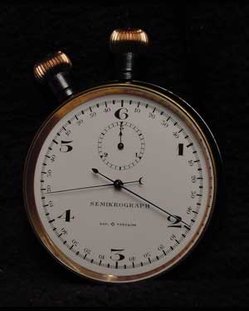
But Sal, deep in thought, didn't respond. His five minutes was up, the referee gave the one minute warning--- and then Sal looked up at Professor Steam, grinned, and made his move.
Honor and pride are at stake and the pressure is really on. Did Sal come up with something in this tough position? What would you do? We certainly hope you wouldn't take Professor Steam's bait and resign. Think it over; unlike Sal you can have all the time you wish, and then make your move before clicking on Read More to see the solution and the conclusion of our story.![]()
Problem Contests Move to Checker Maven
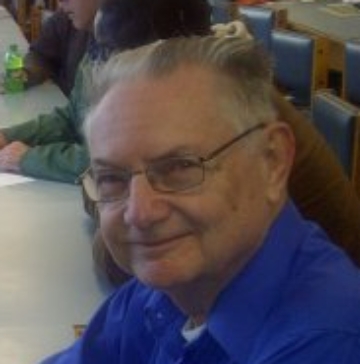
For many years, checker problem legend Bill Salot has been running a series of checker problem composing contests that he calls the "Unofficial World Championship." There have been no less than 55 of these contests and they have seen the publication of a host of quality contemporary compositions, many of which indeed stand in the world-class category.
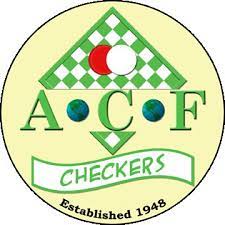
To date these competitions have been hosted at the American Checker Federation (ACF) website. But over the past few years the ACF website has fallen into a state of neglect, and no longer provides a viable hosting venue. So when Mr. Salot approached us to take over the contest hosting, we happily accepted in the interests of ensuring that these fine competitions would continue into the future as well as reach a wider audience.
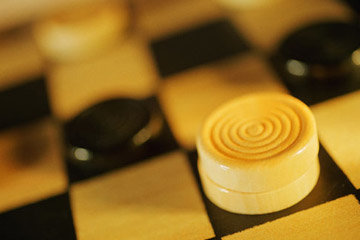
Today we proudly host Contest 56 and you'll have not one but three sparkling problems to contemplate. You can access the competitions, now and in the future, at
Mr. Salot asks that you be sure to vote for your choice of winner after you've studied all the problems. More information is available on the contest page.
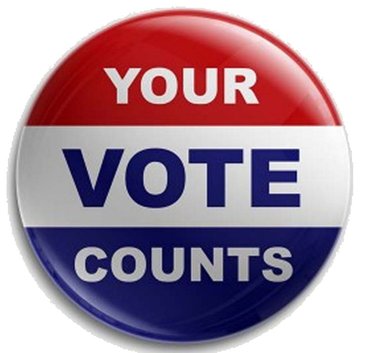
Please enjoy this new Checker Maven feature, brought to you by Bill Salot and some of the best contemporary checker problemists.![]()
When I Played Checkers For My Life

We've published a great deal of checker fiction in The Checker Maven, nearly all of it our own, so it's a special occasion when we come across a piece that is new (to us) by another author. Today we present When I Played Checkers For My Life, taken from a 1908 issue of The Canadian Checker Player. The story is attributed to an S. L. Merrill and first appeared on January 18, 1908 in the Lewiston Journal of Lewiston, Maine. Despite searching old newspaper archives and city directories, we've found no information on Mr. Merrill, but his story, running about 2,800 words, is a good one containing a nice checker problem about three-fourths of the way in. Illustrations have been added by us.
by S. L. Merrill
From my early childhood, I have been a lover of the game of draughts or "checkers" as it is more generally known. My grandfather who lived in Cumberland county, was regarded even after he had passed his 70th year, as one of the most formidable opponents in the "Pine Tree State," to meet across the board. One of my earliest remembrances is of being permitted to sit up an occasional evening after "little folks should be in bed," to see the veteran play the good old game, in the old fashioned way. Intense, ofttimes bitter, was the rivalry, and exciting were the contests between the local champions; and ofttimes the friendly intervention of a third party was necessary to restore harmony and good will.
I remember well the low studded kitchen, with its quaint furnishings, also the spacious old-fashioned fireplace, with its massive andirons, and its huge back log, while a small wagon-load of pine knots crackled and threw a soft and cheerful light, even to the farthest corner of the room.
The dingy asthmatic hand bellows, battered by long years of service, hung on the wall close by.
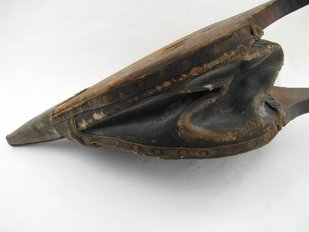
In the spacious chimney-corner stood, where it had stood for years, the old arm chair, whose cushioned depths, "Tip," the household tabby cat--- a handsome "tortoise shell" of sedate manner, and of usual size--- had shared for sixteen years with my grandfather. She was in all respects a privileged character, and invariably when the neighbors came in of evenings to have a friendly game, she would leave her cozy place by the fireside, jump upon the table, and curling herself up in a comfortable position, would watch with close attention and apparent understanding, every move made by the grave and gray-bearded men who had come to give battle to "Uncle Zaccheus," as he was affectionately called by all who knew him.
At times when disputes waxed hot between the belligerents, she would rise to a sitting position and lash her tail impatiently to and fro, as if in full sympathy with the question involved.
In those days, especially in the country towns, "bookplay" was a thing comparatively unknown, and the terms, "Ayrshire Lassie, "Maid of the Mill" and "Glasgow" were as unintelligible to the average player as would have been the cuneiform inscriptions upon the walls of Karnak.
The favorite opening--- in fact, one of the very few practiced--- was the "Single Corner." As an old Vermont farmer, and a clever checker player of the old school, once said to me: "In those good old days we used to start in with 11-15 , 22-18, 15-22, 25-18, 8-11 , 29-25, 10-15, 25-22, 4-8, 24-20. 12-16, 27-24, and we thought that we had quite a good game for Whites. But some of those city fellows came up here one summer and played at this point 16-19, 23-16, 12-19, 24-15, 9-14, 18-9, 11-25, and there we were, left like a ship without her rudder. We old fellows now have to take a back seat."
Naturally, with those opportunities for observation, I early mastered the rudiments of the game, and under the tutelage of my grandfather, who took great pride in my progress, I found myself, at the age of sixteen, a match for any of the local aspirants for championship honors; even for my venerable tutor, who ever seemed to be greatly pleased , and in no ways discomfited by reason of my superior play.
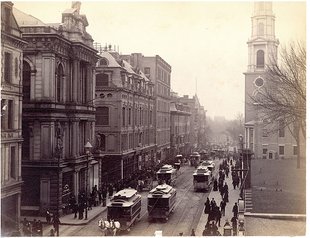
About this time my parents removed to Boston, Mass., where my studies at school, and, later on, my business , afforded me but little time to indulge in my favorite game. Among the acquaintances formed in connection with my business was a young man, about my own age, named Bert Halliday, with whom I was soon on terms of closest intimacy. Our tastes were similar, and we soon be came "chums" in every happy sense that the term implies. As it had been several months since I had studied the "magic squares" naturally the subject of checkers had never been discussed between us.
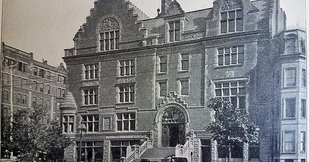
I had no intimation that my friend possessed any knowledge of the game, until one evening he asked me to accompany him to the rooms of the Y.M.C.A. There to my surprise and pleasure, I saw over a dozen tables "set up" in the room and several games in progress. The old-time love for the game came back to me and I watched with intense interest many of the famous Scotch openings, with their intricate problems and crafty variations, which were both admirably played and sharply contested.
It was not long before one of the seats was vacated , and Halliday sat down. His adversary was a man of middle age, whose play had especially attracted my attention by reason of the summary manner in which he had disposed of his late opponents. My friend seemed to be in no way awed or embarrassed as he faced the expert, but started in, in an off-hand manner, that clearly showed his confidence in his own ability to make a creditable score where all others had failed.
The first game was the "File"--- drawn! This was followed by the "Glasgow" and "Defiance," both of which were won by Halliday. The stranger then opened with the "Bristol," which after a hard-fought battle was won by him.
One more game was left to he played, and my friend chose the "Kelso." For a long time there has been a difference of opinion regarding the strength of Black's defense in this opening, many experts stoutly maintaining that White at all points held advantage. When the facts of this ensuing game became known all the other players in the room left their boards and crowded around the contestants. Amid breathless silence they fought as though the international championship was depending upon their efforts.
Gradually the older player was forced into a position from which there was no retreat, so he resigned courteously, rising and congratulating Halliday upon his remarkable play.
Score for "the boy"-- won 3; lost, 1; drawn, 1.
If I had previously entertained an idea that I possessed some knowledge of draughts, I was equally convinced that I was the veriest tyro. Before we parted that evening it was agreed that we should meet two evenings in a week, and that he would "try to teach me a thing or two about the game." By degrees I became initiated into the mysterious mazes of the Scotch variations, and during the long winter evenings attained a proficiency that won from him many words of commendation.
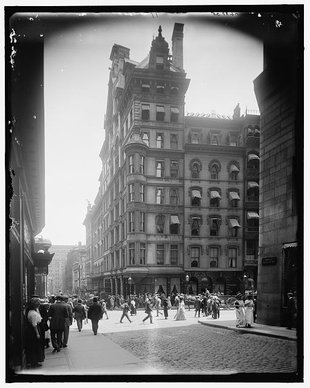
During the following summer my business necessitated my absence from home to an extent that we saw but little of each other and had but few opportunities to indulge in our favorite pastime. Early in the fall we met by chance at an uptown hotel. I noticed at once in him a strangeness of manner, an unnatural lustre in the eyes and a certain petulance when opinions were conflicting with his own, all of which convinced me that something i was wrong. Halliday held a position of great responsibility in one of the large importing houses in the city, and very often worked late into the night, and I felt that he was overtaxing his strength and vitality and needed a rest--- a change of surroundings--- and told him so. He signified his intention of so doing, and we planned then and there a canoe trip together up the waters of the famous West Branch in Maine to try the fishing as we went along. As we parted he seemed to have regained his old time cheeriness of manner and was especially jubilant over the prospective outing.
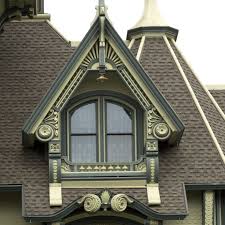
One Saturday afternoon a week later, contrary to my usual custom, I went directly home from my office, hoping that an afternoon's rest and quiet would in some measure relieve me of neuralgic pains that had aggravated me since the day before.
All the members of the family had gone to an afternoon matinee, so I had the house to myself. While reclining upon the couch where I was just beginning to feel comfortable I heard a familiar step upon the piazza, and without the usual preliminary knock, in stepped my friend Halliday. His face was flushed, his hair disheveled, and his eyes glowed with a strange luster.
"Hullo!" said he, "what's wrong? You didn't call for me this noon as usual."
I offered my indisposition as an excuse. He replied somewhat indifferently "Then indeed are we brothers in misfortune. I've been so for days."
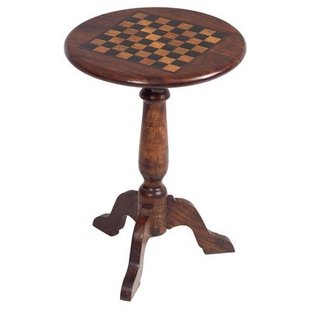
He seemed to be restless and ill at ease, walking repeatedly to the window and looking up and down the street, then picked up and examined the various articles of bric-a-brac upon the mantel that never before had excited his interest, all the time gently humming to himself. Happening to get sight of my checker table,--- a fine one, laid out in mosaic squares and won by me in a prize contest he proposed at once that we would have "a sitting." Thinking it best to humor him in his strange condition I assented, though with reluctance I seated myself at the table and arranged the checkers for play. Upon looking up I saw him standing facing me, with a cocked revolver in his hand.
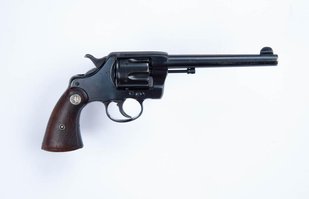
"Old man!" said he, "you and I have played many a game for fun, for the dinners or for the theater tickets; now we are going to play another kind of game, with our lives for the stake."
Alarmed by this remark. I started to my feet undecided just what course to take. His next action and remark however gave me no other alternative than to obey.
"Sit down!" said he, "and begin to play! This revolver has got a hair trigger and is liable to go off at any time. It is is going to be the match of our lives. If you fail to win or draw the entire five games that we shall play, I shall shoot you. If I lose I shall shoot myself. Ah ! that will bring out play that would be worthy of a Barker or a Yates. It is a glorious game."
Though inwardly despairing and fearful, I maintained an outward composure, and resolved to take immediate advantage of any unguarded moment or action on his part and grapple with and overpower him if possible, or at least, get possession of the deadly weapon.
With that intuition or cunning so often seen in people insane, he seemed to divine my intentions, and remained standing, making his moves with his left hand, and carelessly toying with the revolver in his right. If I had thought that his moves would be erratic and careless, owing to his mental condition, 1 was doomed to disappointment, for I never saw him play with more consummate skill. I resolved to play for a draw when any critical point should be reached, and rely upon two of my favorite openings to secure a win. I opened with the "New Sixteenth," knowing him to be not thoroughly "booked" in its variations. He studied the many pitfalls laid for him, and by remarkable play drew the game. Next followed the " Bristol" and the "Ayrshire Lassie" openings, each of which I drew with difficulty. At this, he smiled grimly and said. "You are doing well! You have certainly improved in play." But two games now remained to be played, and I breathed a bit easier.
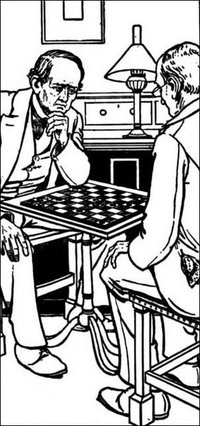
I opened with the famous "Glasgow" an opening that has been a favorite with those great masters at draughts--- Barker, Yates and Wyllie--- and that has won for them some of their most famous matches. But in my alarmed state of mind, I had forgotten that he had made a profound study of this opening, and all of its strong and beautiful lines of play. In all my previous "sittings" with him I was invariably worsted. What had I been thinking in allowing myself to be drawn into this line of play?
He noticed my ill-repressed agitation, and tapped his revolver significantly. "Then you do not like the 'Glasgow', and yet you play it!" he remarked with a small laugh that did not please me at the time.
I replied blandly that I regarded it as the very finest of the Scotch openings, as it afforded the best opportunities for brilliant play, with however this mental reservation, that there were times and conditions more propitious than the present for a thorough enjoyment of the opening.
I made here the desperate resolve that if I failed either to win or draw I would overturn the table and grapple with him regardless of consequences. As I stole a stealthy glance at him, I noticed that his air of intense concentration seemed to be flagging, though he was still a formidable as well as a dangerous foe. Much to my surprise he failed to take advantage of an exchange that would have won for him the game, and I lost no time in improving my opportunity--- the first that had occurred--- to draw the game.
Only one more game to play! The pace was beginning to tell upon me and all the variations of all the various openings seemed to be jumbled together in my mind.
By an effort I collected my scattered wits and resumed play. He chose an English opening, bristling with traps and pitfalls and played to win. Gradually but surely he forced me into the following position.
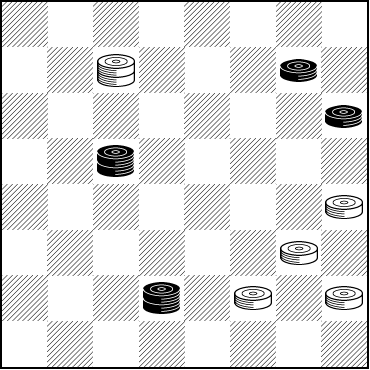
WHITE
White to Play and Win
W:WK6,20,24,27,28:B8,12,K14,K26
I felt the blood go from my heart at this unexpected problem. Halliday chuckled complacently and applied himself with his old time concentration and skill to the finish. I felt that there must be a win for whites, but what genius short of a Barker could force one ? And my crazed opponent relentlessly, with splendid play was pressing his advantage. I asked for a few moments of time. More or less would make but little difference to me now.

Suddenly my mind seemed to grow clearer, and I felt that both life and the game were mine. How many of the readers of this story can follow out the game and give a white win?
At this moment I chanced to glance out of the window, and I saw approaching the house, two athletic young fellows, who I knew had some business with me. I realized that not only my life but the life of my friend, which was none the less dear to me, was saved. With a nervous hand I made the final move that secured for me the game.
Halliday stared at the position a moment, then without a word raised the pistol to his temple. I had but little time to decide what to do, and to have clinched with him without first disabling him, would haye been simply suicidal. Quick as a flash I grasped a footstool near at hand and hurled it with all my force at the uplifted hand, at the same time overturning the table and grappling with him.
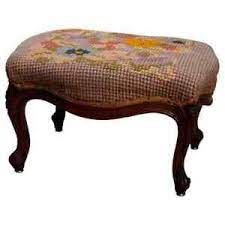
The missile thrown by me went true to its mark. The revolver was discharged the bullet passing upward through the ceiling, while Halliday's arm, benumbed by the shock, fell limp and powerless at his side. The weapon dropped to the floor, where a sharp kick from my foot sent it to the farthest corner of the room. The noise of the discharge added to my calls for assistance caused my visitors to enter hurriedly, without the ceremony of knocking or ringing the bell.
My unfortunate friend fought desperately, but was finally overpowered. After securing him so he could do no injury to himself or to others, medical aid was summoned and he was removed to a place where he could have the best possible care and treatment. Beyond a sprained wrist and slight shoulder bruises, my friend was uninjured.
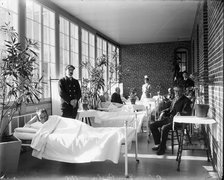
Halliday remained in a sanitarium until the following spring and passed the summer mouths hunting and fishing in the Canadian Rockies. He returned to his business in September of that year in splendid physical condition fully recovered from his strange malady. Strangely enough he retained no recollection of the time when he played a checker match with his dearest friend, the stakes being a human life.

Halliday and I took that trip up the West Branch the following summer, and tramped it together over the northern peaks of the Presidential Range, N. H. with the ever popular Charley Lowe as guide but when the subject of checkers is brought up each seems to be willing to concede the question of supremacy to the other.
The problem is an excellent one although certainly not easy. See how you do--- thankfully no lives are at stake--- and then click on Read More to see the winning method.![]()
Brian's Prize Problem
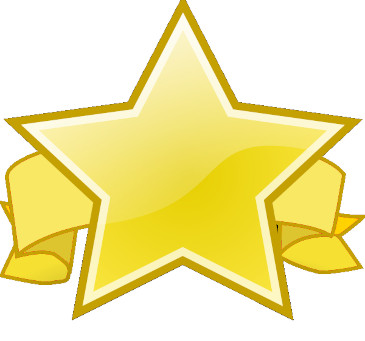
Prize increased to $100!
In checkers we think of a "prize problem" as one that is so good it has won a prize of some sort, presumably in a problem composing contest. But today we have a prize problem that gives a prize rather than wins one--- although we think it's more than good enough to take the prize in many a contest.

Brian Hinkle offers $25 to the reader who is the first to correctly solve the following problem.
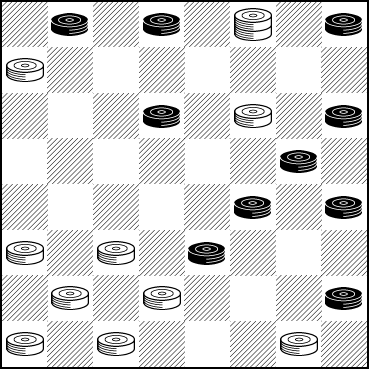
WHITE
White to Play and Win
W:WK3,5,11,21,22,25,26,29,30,32:B1,2,4,10,12,16,19,20,23,28
Is it difficult? You bet it is, and it will require much skill and board vision to work it out. Go ahead, give it your best. Set it up and move the pieces around.
We'll publish the solution on June 5 (Note: this has been delayed due to the increased prizes) and announce the winner (if there is one, and if the winner agrees to have his or her name and location published). The prize won't be awarded if no one solves the problem correctly.
Brian also asks you to help give a name to this problem. He's called it simply "Prize Problem" but wonders if there is a title that might be more thematic. Send your solutions and name ideas to Brian by emailing sbhinkle@charter.net.
Unfortunately in today's legal environment there are some additional terms and conditions. Please read them carefully.
Void where prohibited by law. Taxes, if any, are the responsibility of the winner. The composer, Brian Hinkle, is the sole judge of the correctness of submitted solutions and his decisions are final and without appeal. All correspondence and solution attempts must be sent to sbhinkle@charter.net. Do not send solutions or questions to The Checker Maven. All solutions and suggested problem names become the property of Brian Hinkle and The Checker Maven. If you submit a solution or correspond with Brian, you understand and agree that Brian will then have your email address and possibly your name. To receive the prize, the winner must provide Brian with a postal mailing address. Brian pledges that email and postal addresses will be used only for the purposes of the contest and will not be disclosed to any third party unless a legal obligation to do so arises.
Good luck to one and all!![]()
Beacon Cafe: Cake vs. Pie

Sal Westerman
It wasn't just an ordinary Saturday for Sal Westerman and the members of the Coffee and Cake Checker Club. Today, they wouldn't be gathering in the big booth at the back of the Beacon Cafe in Bismarck, North Dakota. Instead, a team of five club members would depart early in the morning, bound for Fargo, North Dakota, about 200 miles to the east.
It was the big day, the day that the Coffee and Cake Checker Club would contest a team match with Fargo's new Let's Have Another Cup of Coffee, Let's Have Another Piece of Pie Checker Club.
And it wasn't just an ordinary match. Bismarck club leader Sal Westerman had exchanged letters with Professor Don Steam, the leader of the Fargo club, and the Professor's tone had been rather aggressive. They challenged each other to solve checker problems with neither club gaining the advantage, and now the fight for supremacy would take place over the board--- or rather, five boards, with the five top players from each club facing off.
The match would take place at high noon at the coffee shop of the Powers Hotel, the Fargo club's home venue. Sal, as captain, would play against Professor Steam.
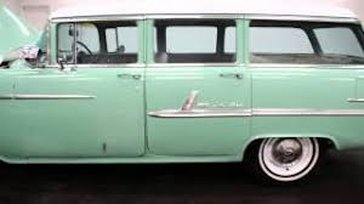
Fueled with coffee and some sweet rolls made by Deana, the proprietor of the Beacon Cafe and a baker without equal in a dozen counties or more, the "boys" (all of them over 50) got on the road at 7 am for the nearly four-hour trip on Highway 10 to Fargo. They were all in good spirits. The team consisted of Sal, Dan, Wayne, Delmer, and Louie, and they were all squeezed into Wayne's station wagon.
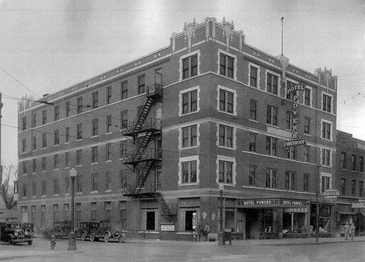
They arrived at the Powers Hotel right on time and were greeted by the Fargo club at the entrance to the coffee shop. While the Fargo "boys" (all of them over 50 as well) were mostly quite friendly, there was a definite coolness between Sal and Professor Steam.
The format of the match was simple. Each player would play two go-as-you-please games with his opponent, once with Black and once with White. Two team points for a win; one each for a draw. The Fargo team would stand lunch for everyone after the match ended. Stakes for the match were five dollars per point, a pretty steep amount.

Professor Steam
Professor Steam had notified the media and there was a reporter and photographer on hand from the local paper, the Fargo Forum. It was rumored that Fargo Mayor Herschel Lashkowitz would make an appearance at lunch to congratulate the winning team, although some thought he just was looking for a free meal.
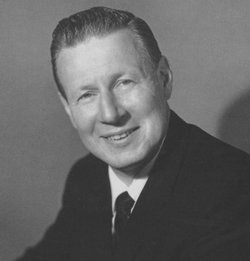
Mayor Lashkowitz
It was almost time to start.
"Welcome to the first Fargo-Bismarck club match," Professor Steam announced to the small but growing group of spectators. "It's likely to be the last match, too, as we expect the Bismarck club to slink off with their tails between their legs after we demolish them today."
"Let's find out over the board!" Sal said, "and let's do it politely, shall we?"
"Well, then, it's time to get down to business," Professor Steam replied.
The match began just a few minutes later. Wayne and Dan were calm, but Delmer and Louie were a bit nervous and fidgety.
Nearly two hours passed. Delmer lost to Kraanz, 2-0, and Louie lost to Krabz, 2-0. But on boards two and three, Wayne beat Kracz 2-0 and Dan beat Kradz 2-0. On board one, Sal and Don drew the first game and were well into the second game. The score so far was Bismarck 9 and Fargo 9.
But in the final game of the match it appeared Professor Steam had the upper hand against Sal. The position on the board was as follows, with Sal to move.
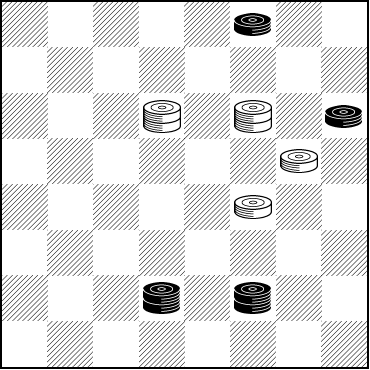
WHITE
White to Play and Draw
W:WK10,K11,16,19:B3,12,K26,K27
Sal knew he would have to fight for a draw, just to draw the match, and it didn't look easy. To make it worse, Professor Steam kept up a barrage of trash talk.
"Give it up and save us some time. The Mayor's here and you're holding up lunch. You haven't got what it takes to pull off a draw. Why don't you just admit it?"
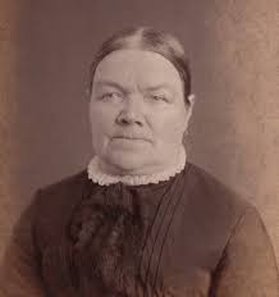
Miss Kraetz
Sal did not reply. The referee, Miss Kraetz, should have asked Professor Steam to quit disturbing Sal, but she was from Fargo and clearly biased.
But Sal closed his eyes and focused, picturing the position in his mind. There ... there ... and there.
"Let's just play it through," he said, looking squarely at Professor Steam, "and we'll see just what happens."
Sal reached out and prepared to make his move.
Facing a rival who has done everything possible to infuriate you, how would you do? Could you save the match for your team? Think it over and then click on Read More to see the solution and the rest of the story.![]()
Marvin in the Playoffs, Part 1
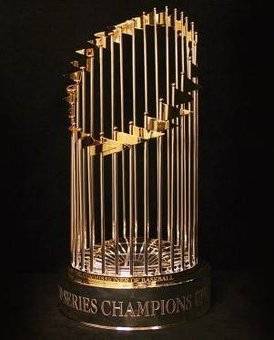
The annual Spring Classic, the World Series of Checkers, was coming up soon for the National Checker League. But first there would be the Division Playoffs, and the Detroit Doublejumpers were facing the surprisingly good Kansas City Kingers for the American Conference title and the right to go on to the World Series.
The Doublejumpers had handily won their Division, but the Kingers had amassed nearly as high a winning percentage in their own Division of the American Conference. In a huge surprise that had oddsmakers scrambling for cover, the Kingers were leading 2 1/2 - 1 1/2 in the best of five playoff series. The Doublejumpers had to win the fifth match in order to force a sudden-death playoff. A tie wouldn't do.

And so the pressure was on as the match opened in the Kansas City Checkerdrome. The Doublejumpers fought valiantly on boards 2 through 5, but those games concluded with a 2-2 score. It was all down to first board, and that meant that the Doublejumper Captain, Marvin J. Mavin, would have to notch a win. Not a draw, but a win.

Marvin J. Mavin
His opponent, the Captain of the Kingers, was a noted physician who left the University of Kelowna Teaching Hospital for the world of Major League Checkers. Everyone just called him Doctor Sharper because of his sharp wit, sharp play, sharp temper, and sharp elbows.

Doctor Sharper
The game did not look good for Marvin, as he faced the following position.
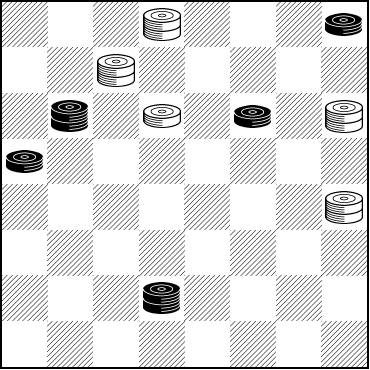
WHITE
White to Play and Win
W:WK2,K6,10,K12,K20:B4,K9,11,13,K26
"Resign now, my boy, or I'll even be generous and offer you a draw," said Doctor Sharper. "Save us both some time. The Kingers have outplayed your soon to be ex-champion team and you might as well just admit it and go drown yourself in beer afterwards."
"Oh, you think so, pill-pusher? Well Marvin J. Mavin ain't done 'til he's done."
"You're done! Ha ha! You have that part right at least!"
"Well I ain't one of your students and you ain't telling me nothing about who's better and who ain't."
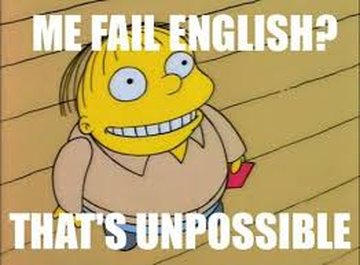
"Taken a remedial English course lately?" the Doctor asked. "Sounds like you could use one. And for the record, I would never deal with a patient as non-compliant as you."
"You need a course in manners, sawbones. And maybe checkers, too." Watch this.
So saying, Marvin made his move.
Doctor Sharper seems quite sure of himself. Did Marvin find the winning move? Could you? Cast a sharp eye on the position and look for a sharp continuation, then click your mouse sharply on Read More to see the solution and the rest of the story.![]()
The Checker Maven is produced at editorial offices in Honolulu, Hawai`i, as a completely non-commercial public service from which no profit is obtained or sought. Original material is Copyright © 2004-2025 Avi Gobbler Publishing. Other material is public domain, as attributed, or licensed under Creative Commons. Information presented on this site is offered as-is, at no cost, and bears no express or implied warranty as to accuracy or usability. You agree that you use such information entirely at your own risk. No liabilities of any kind under any legal theory whatsoever are accepted. The Checker Maven is dedicated to the memory of Mr. Bob Newell, Sr.

